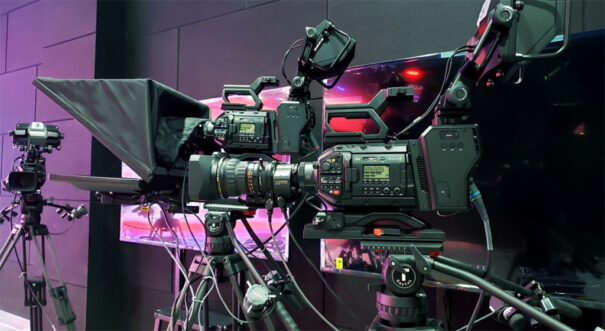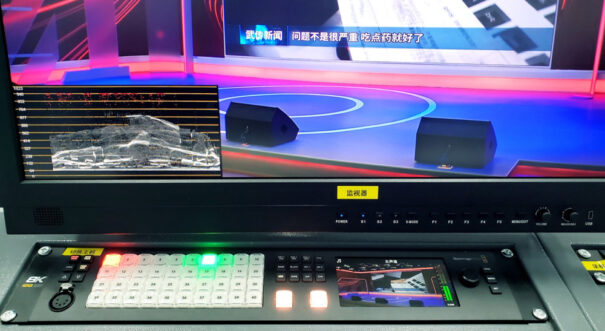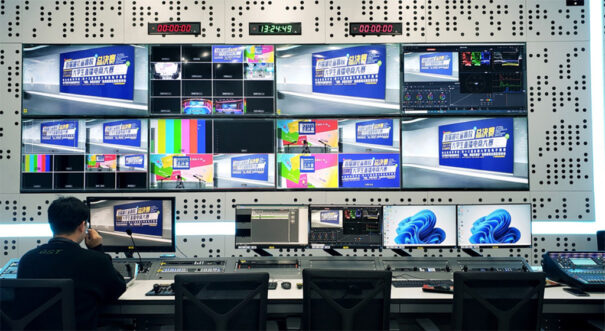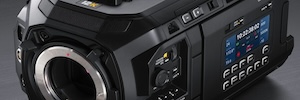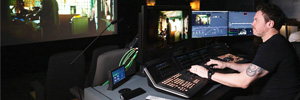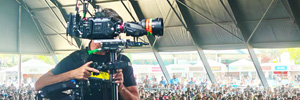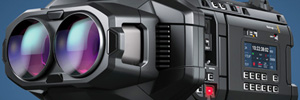WUC opens three new TV studios with workflow powered by Blackmagic
Magia nera equipment is at the heart of the workflow of the three new television studios at the Multimedia Convergence Center of WUC, Wuhan University of Communications, China
These three studios, which serve as hands-on training platforms for various classrooms and production spaces, include a wide variety of Blackmagic Design solutions, such as seven Blackmagic URSA Broadcast G2 cameras; an ATEM Television Studio Pro 4K mixer; two ATEM Constellation 8K models; two ATEM 1 M/E Advanced Panel 10 units; an ATEM Camera Control Panel device; various Blackmagic Camera Fiber Converter and Blackmagic Studio Fiber Converter units; HyperDeck Studio 4K Pro recorders; and a variety of Teranex Mini, Micro Converter, Teranex AV and Teranex Express devices.
The three sets can be operated independently, allowing three different programs to be produced simultaneously, or they can be combined into a more complex transmission system. For signal distribution, two ATEM Constellation 8K mixers installed in the news and magazine studios are used to take advantage of the 40×24 12G SDI inputs and outputs across multiple programs and formats. Similarly, the four 12G SDI 12G simultaneous display outputs on each ATEM Constellation 8K device are linked to four 4K TVs to monitor the various sources.
Cheng Meng, a lecturer in the WUC teaching center and practical skills lab, is very appreciative of the Blackmagic role in his new facility: “I was deeply impressed by the diversity, functionalities, and flexibility of Blackmagic Design’s products throughout the design and implementation of the solution. Whether it’s production, live production, or post production, it offers products that suit our needs. Each product comes with rich features, reducing the need for external devices. This not only streamlines the entire system design and maintenance but also cuts down on overall costs.”
ATEM and connectivity in the WUC new studios
Ethernet network control of the ATEM mixers simplifies signal distribution and content monitoring in the three studios. WUC staff, located in the control center, have the ability to manage camera signals in any of the studios thanks to the ATEM Software Control program, eliminating the need to go down to the second floor.
Wang Wei, technical director of Wuhan Vijita Technology (the project integrator), highlights the benefits of the ATEM mixers for backing up and restoring settings from the software: “This proves especially advantageous in educational environments, where various students and teachers interact with the switchers. The ability for the studio manager to swiftly reinstate the original settings ensures a seamless and consistent operation.”
When a URSA Broadcast G2 camera, equipped with a Blackmagic Camera Fiber Converter device, is connected to the studio system via an SMPTE cable, the Blackmagic Studio Fiber Converter equipment in the control room is responsible for performing all the necessary conversions between the camera and the switcher. This not only allows all the images and audio to be transmitted, but also provides the ability to control the camera and even power it, all with a single SMPTE cable.
DaVinci Resolve at WUC
A dedicated DaVinci Resolve Studio workstation with a DeckLink 8K Pro card is also installed in each control room. This space facilitates direct signal capture for centralized storage, allowing for editing, color grading, graphics, visual effects and audio post production in DaVinci Resolve Studio. The stored assets can also be accessed from the various classrooms throughout the institution, which are connected by high-speed 10G fiber optic cables.
In this way, Resolve Studio is not only used for image capture and post-production, but also to meet the challenges in terms of color matching between different cameras of different brands: “What’s particularly noteworthy is the URSA Broadcast G2’s ability to import LUTs. We can create custom LUTs in DaVinci Resolve to simulate the visual styles of other cameras and then import the LUT to the URSA Broadcast G2. This is the way we ensure color consistency across multiple camera angles, which has been adopted by many other clients, such as Wuhan TV,” explains Wei.
Because all of the studios support 4K HDR production, DaVinci Resolve Studio’s HDR waveform monitors were also used for technical monitoring of the material.
Ti è piaciuto questo articolo?
Iscriviti al nostro Nutrire e non ti perderai nulla.



